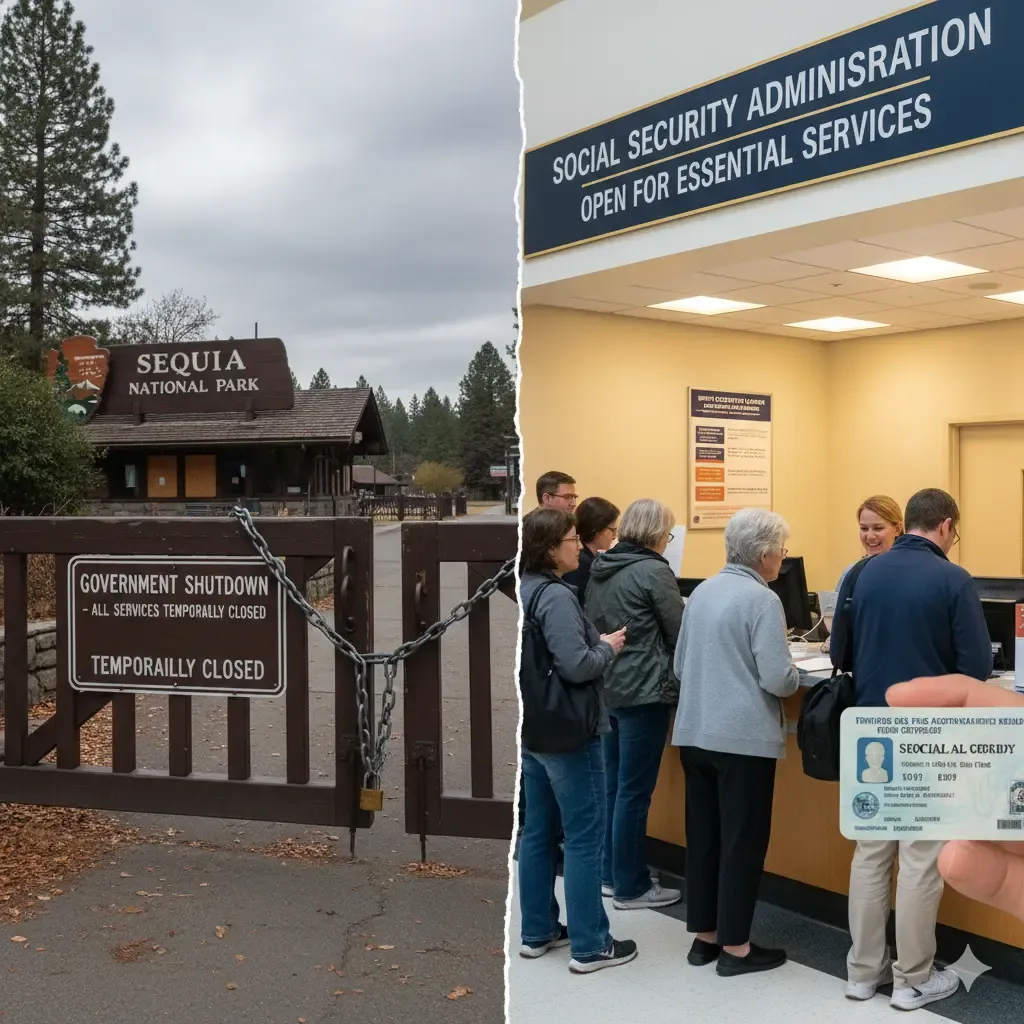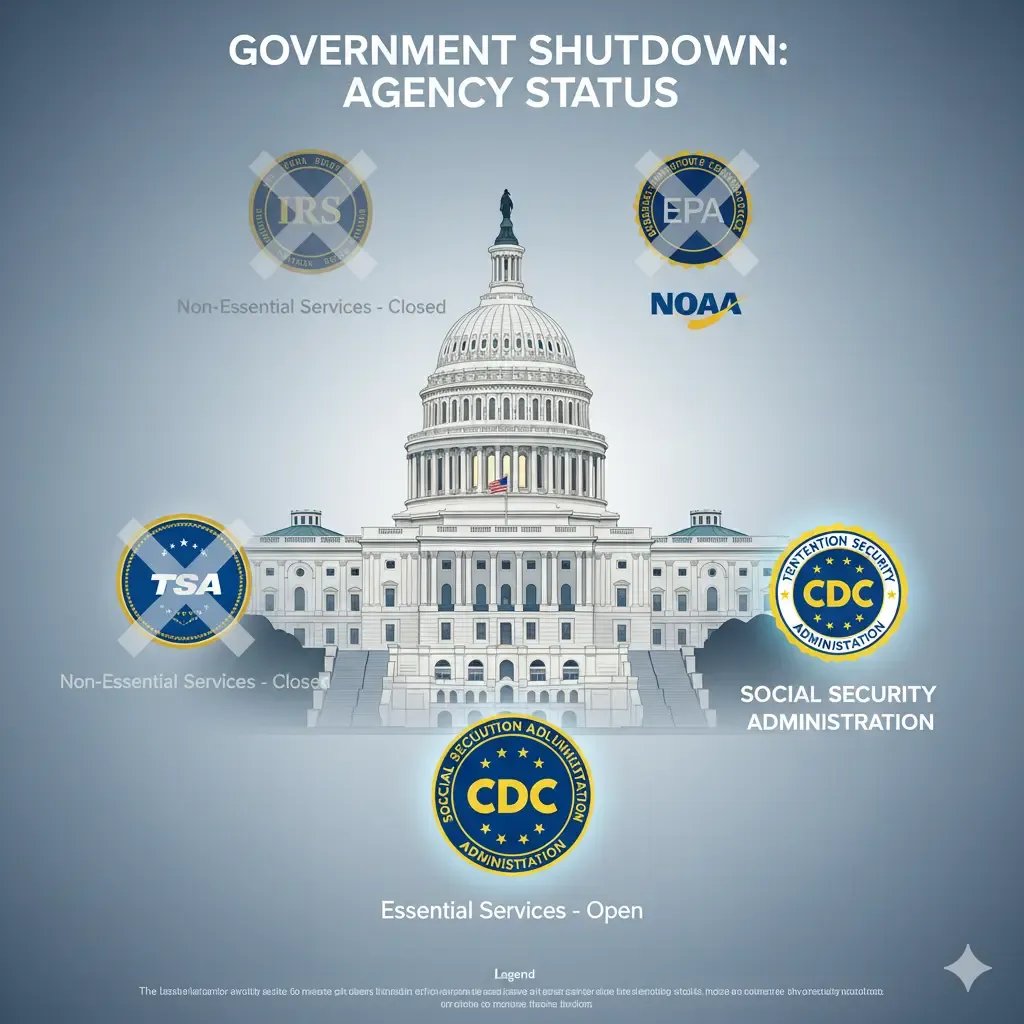
US Government Shutdown 2025: Causes, Effects, and What Citizens Need to Know
Explore the potential US Government Shutdown 2025: why it happens, its impact on citizens, federal employees, and essential services, plus historical context and FAQs. Stay informed
US Government Shutdown 2025: What It Means, Why It Happens & How It Affects You
The potential for a US Government Shutdown in 2025 looms as a recurring challenge in American politics, often leaving citizens uncertain about what to expect.
When Congress fails to pass appropriations bills or a continuing resolution (CR), federal funding lapses — triggering a partial or full shutdown of government services.
This guide explains shutdowns in plain terms:
- Why they happen
- How they affect citizens and services
- Historical context
- Frequently asked questions for 2025
What Is a US Government Shutdown?
A government shutdown occurs when Congress and the President cannot agree on funding legislation.
Without new budget authority:
- Federal agencies must stop “non-essential” operations.
- Essential services such as Social Security, military operations, and mail delivery continue.
Shutdowns are usually triggered by disputes over:
- Spending levels
- Policy riders attached to budget bills
- Broader political standoffs
Source: Congressional Research Service
How a Government Shutdown Affects Citizens
Shutdowns create wide-ranging consequences that touch nearly every sector of American life.
- Federal employees: Millions are furloughed, meaning they are temporarily placed on unpaid leave. Essential staff must continue working, often without immediate pay.
- National parks and museums: Many close during shutdowns, impacting tourism and local economies.
- Passports and visas: Processing slows or halts, creating travel delays.
- IRS and taxes: Customer service and refunds may be delayed.
- Social Security and Medicare: Benefits continue because they are funded separately, though customer support services may be reduced.
- United States Postal Service (USPS): Operations continue because USPS is self-funded.
Source: OMB Shutdown Guidance (Archived)
History of US Government Shutdowns
Government shutdowns became a recurring feature of American politics following the 1974 Congressional Budget Act.
Notable Examples
- 1995–1996 (Clinton): Lasted 21 days, one of the longest at the time.
- 2013 (Obama): Lasted 16 days, largely over disputes about the Affordable Care Act.
- 2018–2019 (Trump): Lasted 34 days, the longest shutdown in U.S. history, affecting 800,000 federal workers.
Each shutdown arises from unique political disputes, but the mechanism — a deadlock over appropriations — remains the same.

Frequently Asked Questions About the 2025 Shutdown
- Is the government shut down right now (2025)?
As of this writing, the U.S. government is not shut down. Congress is still negotiating budget measures. This section should be updated regularly if conditions change.
- What does furlough mean during a shutdown?
Furlough is the temporary, unpaid leave status of non-essential federal employees. Workers are often retroactively paid after the shutdown ends.
- Does a shutdown affect Social Security checks?
No. Social Security benefits continue because they are funded through trust funds, not annual appropriations. However, customer service response may be slower.
- Is the USPS affected?
No. The United States Postal Service is self-funded and mail delivery continues as normal.
- How long do government shutdowns last?
It varies. Shutdowns have lasted from a single day to more than a month. The record is 34 days in 2018–2019.
Key Takeaways
- Shutdowns occur when Congress fails to pass appropriations bills or temporary extensions.
- They impact federal employees, government services, and the broader economy.
- Essential services such as Social Security, Medicare, and USPS generally continue.
- The 2018–2019 shutdown was the longest in U.S. history at 34 days.
- A potential 2025 shutdown would depend on the outcome of current political negotiations.
References and Further Reading
- Congressional Research Service: Government Shutdowns – A Brief History
- Pew Research Center: 5 Facts About Government Shutdowns
- Brookings Institution: What Happens During a Government Shutdown?
Collaborate with me
Contact me directly:
apsan@apsan.com.np